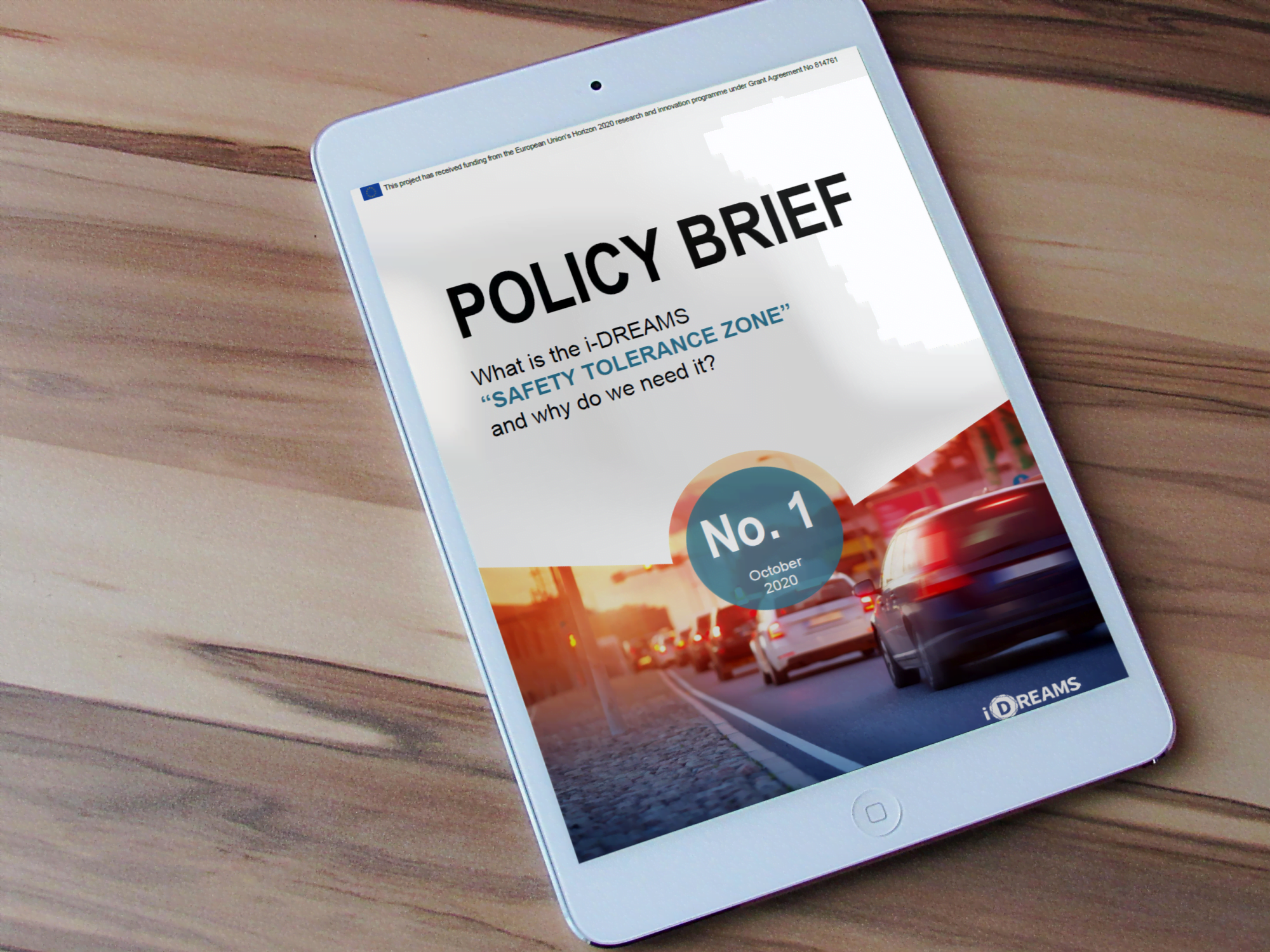i-DREAMS launches first Policy Brief by POLIS on “Safety Tolerance Zone”
The i-DREAMS project launches its first Policy Brief dedicated to the original concept of the ‘Safety Tolerance Zone’. The brief has been written by Project Partner POLIS Network and overviewed by Project Coordinator University of Hasselt.
‘What is the i-DREAMS “SAFETY TOLERANCE ZONE” and why do we need it?’ outlines key messages for decision makers, NGO advocates and journalists, synthesizing major lessons learnt from the Deliverable 3.1 Framework for operational design of experimental work in i-DREAMS, authored by Project Partner Loughborough University.
Considering the evolution of the road safety management system through consistent technological development as well as the modern inclusive and holistic idea of road safety (not just driver-centric and not just focused on a mechanic action happening in a car, bus, tram, train or truck), the policy brief highlights how the original concept of the i-DREAMS ‘Safety Tolerance Zone’ gives a fitting answer to how road safety technology should be redefined and pursued to break the never-ending injury chain, raise awareness on climate change and eco-efficiency, and solve the challenges of road-stress and road rage.
Road injuries and deaths, climate change and energy depletion and mental and behavioural issues connected and amplified by driving should not be accepted as inevitable. To break the wheel, we have to highlight the interconnection between all of these modern challenges and global public health problems and tackle them at their source. The objective? To foster a road safety strategy that gives agency to better and more informed drivers, who are nudged by technological support into safer road behaviour and performance, thereby reducing exposure to risk for all road users.
The key messages from the i-DREAMS Policy Brief are above-all intended to support more informed and inclusive decision-making. Ideally, it will help creating an understanding of the project and its objectives and will further foster the development of a State- and EU-compliant policy framework that gives priority to road safety technology, thus allowing all road users to safely share the road.

